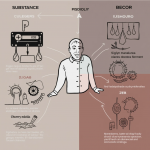
Life Insurance Stories: Real-Life Experiences and Lessons Learned
Life insurance is often viewed as a complex, sometimes intimidating financial product, but at its core, it’s about providing security and peace of mind. For many families, life insurance has been a lifeline during times of unexpected hardship. These life insurance stories show how important it can be to protect loved ones from the financial difficulties that can come with loss. In this article, we’ll explore real-life insurance stories that highlight the impact of life insurance, helping people understand why it’s not just a policy—it’s a safety net for families when they need it most.
The Unexpected Death of a Breadwinner
One of the most common life insurance stories involves the sudden passing of a family’s primary breadwinner. Imagine a family where the father is the sole earner, working tirelessly to support his wife and two young children. He takes out a life insurance policy, understanding the importance of ensuring his family’s financial future should anything happen to him. Tragically, after an unforeseen heart attack, he passes away in his early 40s. Without life insurance, his family would have been left struggling with mortgage payments, everyday expenses, and the costs of raising children. The life insurance payout allowed the family to stay in their home, continue the children’s education, and maintain their standard of living, relieving some of the stress during an incredibly difficult time.
This story is a powerful reminder of the importance of preparing for the unexpected. No one likes to think about their own mortality, but ensuring your family is taken care of in case the unthinkable happens is crucial.
Protecting a Small Business
Life insurance isn’t just for individuals; it can also be a vital part of protecting a small business. In one case, two partners who ran a successful local bakery took out life insurance policies on each other. Their reasoning was simple: if one partner were to pass away, the business could suffer financially and might not survive. Unfortunately, one of the partners was diagnosed with cancer and passed away within a few months. The remaining partner used the life insurance benefit to buy out the deceased partner’s share of the business, ensuring that the bakery could continue to operate without disruption. It also provided financial support to the late partner’s family, giving them security in the face of a significant loss.
This story illustrates how life insurance can provide protection beyond just family members, helping to safeguard businesses and the employees who depend on them.
A Legacy of Generosity
Some people take out life insurance policies not only to protect their immediate family but also to leave behind a meaningful legacy. One story involves a retired teacher who, after years of helping students in the classroom, wanted to continue making a difference after she was gone. She decided to name a local education charity as the beneficiary of her life insurance policy. When she passed away, the charity received a significant donation that helped fund scholarships and programs for underprivileged students for years to come.
This story demonstrates how life insurance can be used as a tool for giving back and creating a lasting impact, even beyond one’s lifetime. By naming a charity or a cause as a beneficiary, policyholders can continue to support the values and initiatives they care about most.
Financial Protection for Stay-at-Home Parents
It’s common to think of life insurance as something primarily for breadwinners, but stay-at-home parents also provide significant financial value to their households. One family learned this lesson the hard way. After the sudden death of their mother, who was a stay-at-home parent, the father was left not only grieving but also scrambling to manage the responsibilities she had shouldered. Without life insurance, he would have had to drastically alter his work schedule or pay for expensive childcare services. Fortunately, the family had taken out a life insurance policy on the mother, which provided enough financial support to cover childcare, household expenses, and help during the adjustment period. This allowed the father to continue working while ensuring the children’s needs were still met.
This story highlights the often-overlooked value of life insurance for non-working parents, whose contributions are essential to maintaining the household’s financial balance.
Paying Off Debts After an Untimely Death
One of the primary benefits of life insurance is helping surviving family members avoid falling into financial ruin. In one case, a young couple in their 30s had just purchased a home, taking on a hefty mortgage. Tragically, the husband passed away in a car accident shortly after, leaving the wife devastated and facing the burden of paying off their new mortgage on her own. Fortunately, the husband had taken out a life insurance policy that covered the cost of the mortgage. This meant that the wife did not have to sell the home or take on additional debt to cover the expenses. Instead, she was able to focus on grieving and eventually rebuilding her life.
This story is a clear example of how life insurance can prevent financial disaster by covering significant debts like a mortgage, allowing surviving family members to keep their homes.
Securing a Child’s Future
One of the most heartwarming life insurance stories involves parents who take out a policy to ensure their children’s future is secure, even if something happens to them. In this case, a single mother was raising her daughter alone and working two jobs to make ends meet. She knew that if something happened to her, her daughter would need financial support, especially to cover college expenses. She took out a life insurance policy specifically designed to pay for her daughter’s education in the event of her death. Tragically, the mother passed away unexpectedly when her daughter was still in high school. Thanks to the life insurance policy, the daughter was able to attend college without financial worry, fulfilling her mother’s wish for her to receive a good education.
This story demonstrates the role life insurance can play in securing a child’s future and ensuring that they have the opportunity to pursue their dreams, even in the face of loss.
Conclusion
These life insurance stories show the profound impact that planning for the future can have on loved ones, businesses, and even communities. From protecting families from financial hardship to securing a child’s education or ensuring the continuation of a small business, life insurance is more than just a policy—it’s a lifeline in times of need. While it can be difficult to think about, taking out life insurance is one of the most important decisions you can make to safeguard the future of those who depend on you.
FAQs
1. Why is life insurance important?
Life insurance is important because it provides financial security for your loved ones in the event of your death. It helps cover expenses like mortgages, childcare, debts, and even future costs like college tuition. Without it, families can face significant financial strain during an already difficult time.
2. Who should consider life insurance?
Anyone who has dependents, such as a spouse, children, or aging parents, should consider life insurance. It’s especially important for those who are the primary breadwinner or contribute significantly to the household’s finances, including stay-at-home parents.
3. Can life insurance benefit businesses?
Yes, life insurance can be crucial for business owners. Key-person insurance can protect a business in the event of the death of an owner or essential employee, ensuring that the business can continue operations without financial disruption.
4. What’s the difference between term and whole life insurance?
Term life insurance provides coverage for a specific period, like 10, 20, or 30 years, and pays out only if you die during that term. Whole life insurance, on the other hand, covers you for your entire life and often includes an investment component, allowing you to build cash value over time.
5. Can I leave my life insurance to a charity?
Yes, you can name a charity or nonprofit organization as the beneficiary of your life insurance policy. This allows you to leave a lasting legacy and support a cause you care about after your passing.
6. How much life insurance should I have?
The amount of life insurance you need depends on your financial obligations, such as debts, income replacement needs, and future expenses like college tuition for your children. A common recommendation is to have coverage that is 5-10 times your annual income, but your specific needs may vary.











